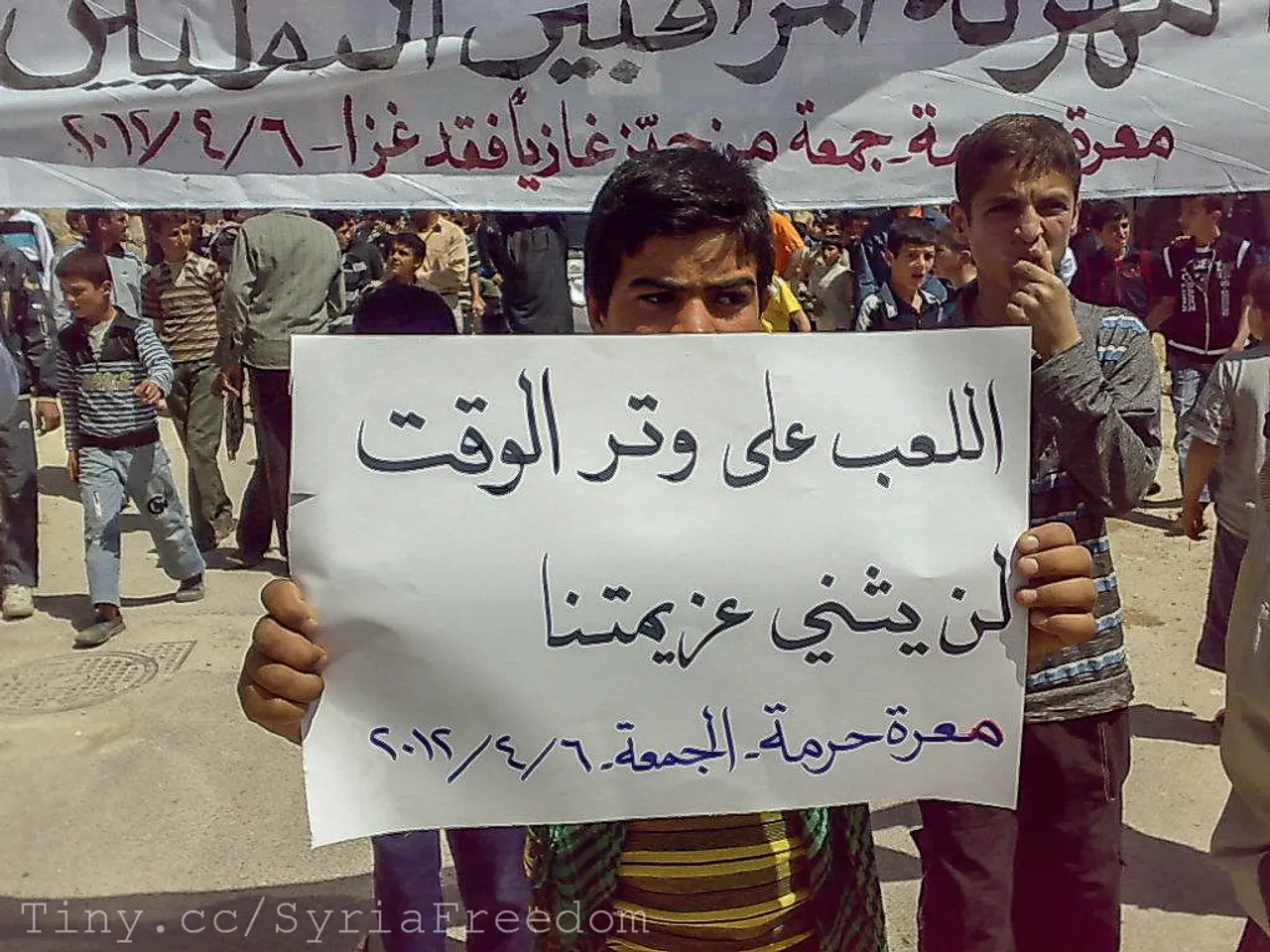Cost of Israeli rule in Gaza City, Netanyahu's strategy to vanquish Hamas
The Israeli government has taken a significant step towards the occupation of Gaza City, as part of a broader military offensive aimed at disarming Hamas and demilitarizing the Gaza Strip. On August 7, 2025, Israel’s Security Cabinet approved Prime Minister Benjamin Netanyahu's proposal for the occupation of Gaza City[1][3].
The IDF Chief of Staff has approved the operational framework for the military takeover. Plans include issuing eviction orders to roughly 1 million Palestinians in Gaza City and its surroundings, and establishing humanitarian aid points outside combat zones[1][4]. The objective is to disarm Hamas, free hostages, maintain Israeli security control, and establish a new civilian administration that does not support terrorism[1][4].
However, this move raises serious humanitarian, legal, and military concerns. The occupation plan is expected to forcibly displace about 1 million civilians, risking massive civilian casualties and destruction[1][3]. Human rights organizations and the UN have condemned the plan, warning that it will likely result in war crimes, atrocity crimes, and exacerbate the humanitarian catastrophe in Gaza[3][5].
The UN High Commissioner for Human Rights has demanded an immediate halt to the plan, citing violations of international law and the risk of massive displacement and suffering. The International Commission of Jurists also called for stopping the plan to avoid further war crimes[3][5]. Some Israeli military officials have expressed skepticism about the plan, warning it could lead to a protracted and costly urban battle with high military and civilian casualties, similar to past conflicts like Fallujah and Mosul[2].
The success of this strategy would depend on regional support and the backing of the United States. The Israeli Minister of Finance anticipates the total annexation of the West Bank and Gaza after Trump's victory in the US[6]. Without such support, the occupation would be seen as Israeli colonization in Gaza, fueling a new wave of radicalization.
The option of a military occupation in Gaza can take multiple forms, from a temporary Israeli presence to a subsequent territorial annexation. Komi Michael, a principal researcher at the Israeli think tank INSS, suggests that occupying Gaza and establishing a temporary military administration is the best option to achieve the war's objectives[7].
It's important to note that the history of the occupation of the Gaza Strip shows in every aspect to be counterproductive to the interests of the majority of Israelis. The humanitarian situation in Gaza has severely deteriorated, with undeclared famine being one of the main causes of death[8]. The Israeli government has ruled out an "alternative plan" that would not achieve the defeat of Hamas or the return of hostages[9].
The approved proposal aims to definitively end Hamas' control over Gaza, leaving the fate of the rest of the enclave uncertain. The narrative of an occupation of Gaza has become dominant in the Israeli government after the breaking of the ceasefire in March[9]. High-level ceasefire negotiations remain at a standstill[10].
This decision has led to disappointment among the families of the hostages, with one family member stating, "Our greatest fear has come true"[11]. Netanyahu aims to hand over control of the enclave to a "civil government" composed of Palestinians who do not advocate for Israel's destruction[12].
In conclusion, the Israeli government's decision to occupy Gaza City raises significant concerns regarding humanitarian, legal, and military implications. The success of this strategy hinges on regional support and the backing of the United States, and it remains to be seen how this will unfold in the coming months.
Protesters across the globe have taken to the streets in mass demonstrations, voicing their disapproval of the Israeli government's decision to occupy Gaza City, citing humanitarian, legal, and military concerns. The recent move is also a major topic in the general news and political discussions, with many questioning the potential religious and political repercussions of war-and-conflicts in the region, particularly if it escalates into a broader conflict like Fallujah or Mosul.







